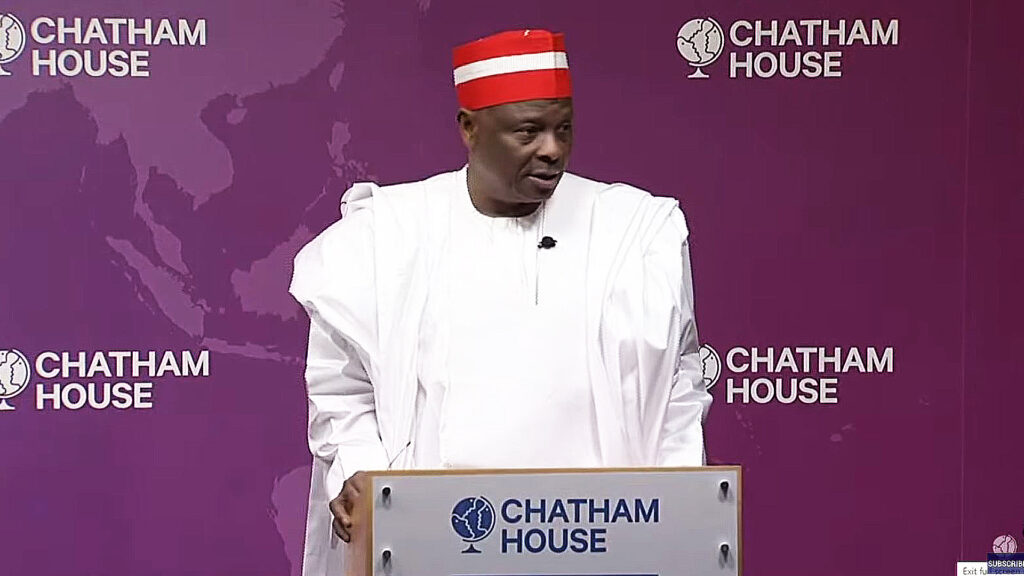Senator Rabi’u Kwankwaso, the national leader of the New Nigeria Peoples Party (NNPP), expressed a strong critique of the ruling All Progressives Congress (APC), declaring that the party has lost its focus and direction. This statement was made during a gathering where he welcomed a significant number of APC members from Dala Local Government Area in Kano into the NNPP. The senator argued that the APC failed to effectively address the pressing issues facing Nigeria and asserted that it is crucial for citizens to work towards removing the party by the next general elections in 2027. Kwankwaso’s comments reflect a sentiment that many Nigerians share regarding the need for political change, particularly as they grapple with the consequences of what he described as erroneous leadership and policies.
The NNPP presidential candidate for the 2023 elections, Kwankwaso has indicated his intention to run for the presidency again in 2027. He believes that the NNPP is well-equipped to bring about the much-needed transformations within the country. The senator emphasized the party’s capability to implement changes that respond to the yearnings of Nigerians, focusing on improving their living conditions. He portrayed the current hardships experienced by the populace—manifested in unemployment, inflation, and overall economic challenges—as a direct result of the mismanagement and inadequate strategies of the APC-led government at the federal level. Kwankwaso remains steadfast in presenting the NNPP as the viable alternative that can eventually lead Nigeria toward a more prosperous and equitable future.
Highlighting the progress made under the NNPP-led administration in Kano State, Kwankwaso pointed out that the state stands as a beacon of hope amidst the turmoil attributed to national leadership failures. He underscored the transformative achievements made in both infrastructural development and human capital within the state, which he claims contrast sharply with the struggles faced by many Nigerians under the APC. His remarks were aimed at not only showcasing the efficacy of the NNPP’s governance approach but also to inspire a broader movement among Nigerians who are disillusioned with the current administration.
During the welcoming ceremony at his residence, Kwankwaso expressed gratitude towards the people of Kano, including the youth and women, for their unwavering support of the NNPP. He noted the significance of the event as over 963 members from the APC, led by the local party chairman, chose to defect and join the NNPP. This mass migration of political loyalty was framed as an acknowledgment of the shortcomings of the APC, as these former members recognized the “light” provided by the NNPP and the opportunities for change it represents. Kwankwaso asserted that this influx of new members signifies a collective realization of the need for political accountability and progressive governance.
The sentiments shared by Alhaji Sabiu Maialawayyo, the spokesperson for the defectors and the chairman of the APC in Dala, echoed Kwankwaso’s assertions regarding the leadership of the NNPP. Maialawayyo expressed appreciation for the warm reception the new members received and committed to contributing positively towards the NNPP’s objectives. He praised Kwankwaso as a strong leader and reassured him of the loyalty and dedication of the newly defected members, foreshadowing the party’s ambitions in the coming elections. This allegiance underscores the belief that Kwankwaso has both the vision and potential to emerge as a leading candidate for the presidency in 2027, potentially reshaping Nigeria’s political landscape.
Kwankwaso’s rallying cry for citizens in Kano and across northern Nigeria to join forces with the NNPP encapsulates his call for collective action against the prevailing political structure. He urged individuals to reclaim their political destiny and foster a sense of agency, advocating for a united front in pursuit of a better Nigeria. The recent events reflect not only the tactical movements within Nigerian parties but also the broader socio-political dynamics at play, as various factions seek to position themselves advantageously for the future. The senator’s leadership in the situation paints a picture of an evolving political atmosphere, where dissatisfaction with the status quo may pave the way for consequential changes in governance.
In conclusion, Senator Rabi’u Kwankwaso’s emergence as a vocal critic of the APC and a proponent of the NNPP highlights the struggles for political realignment in Nigeria. By welcoming APC defectors and emphasizing his party’s governance successes in Kano, he is aiming to galvanize support and establish a strong foundation for the elections ahead. Kwankwaso’s vision for a revitalized Nigeria underscores the importance of leadership and accountability, as citizens continue to navigate the significant challenges of unemployment, inflation, and overall governance. As 2027 approaches, the political landscape may witness significant shifts driven by the sentiments of a populace ready for change.














